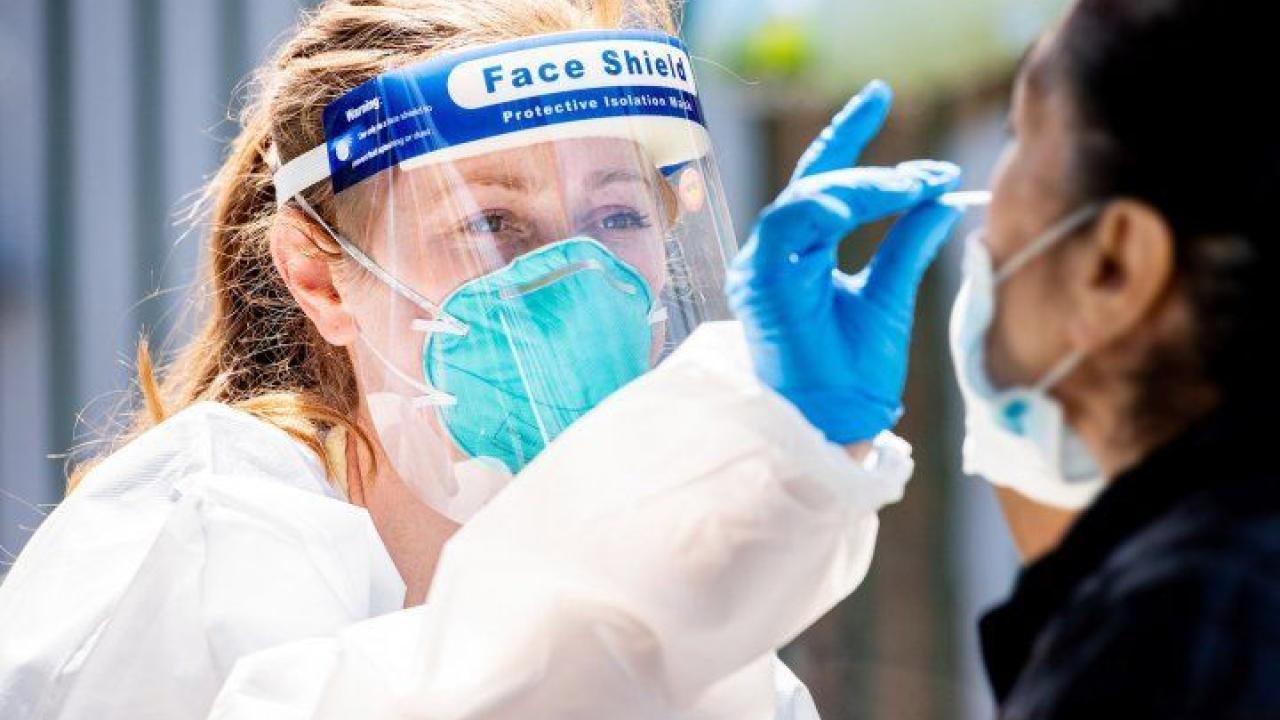
UCSF helped to provide COVID-19 testing in the Mission District in April. It is now collaborating to expand testing in several San Francisco neighborhoods. Photo by Barbara Ries
UC San Francisco epidemiologists and infectious disease specialists are partnering with several community organizations and the San Francisco Department of Public Health (SFDPH) to offer comprehensive, voluntary COVID-19 testing to residents of the Bayview, Sunnydale and Visitacion Valley, three medically underserved neighborhoods in the southeast region of the city with significant African-American, Pacific Islander, Chinese and Latinx populations.
The collaboration is the latest example of UCSF’s tightly coordinated work with the city and county of San Francisco, the state of California, and affected communities to respond to the public health crisis presented by COVID-19.
Under the banner “United in Health D10” (a reference to San Francisco’s Supervisory District 10, where the neighborhoods are located), testing for the Bayview will take place on May 30 and 31, 2020, from 9 a.m. to 5 p.m. at Havard Early Education School, 1520 Oakdale Ave; testing for Sunnydale and Visitacion Valley will take place June 1 and 2, 2020, from 9 a.m. to 7 p.m. at Herz Playground, 1701 Visitacion Ave.
United in Health D10 is part of the recently launched UCSF COVID-19 Community Public Health Initiative, which aims to counteract an overall lack of data about the community spread of SARS-CoV-2 that has made the virus hard to track and contain. The initiative, led by Kirsten Bibbins-Domingo, PhD, MD, MAS, vice dean for population health and health equity at the UCSF School of Medicine, focuses on communities and populations disproportionately affected by the virus, and on building robust community partnerships. For example, the initiative recently sponsored a similar testing program in the Mission District, an area that, along with the neighborhoods in United in Health D10, is among the neighborhoods with the highest rate of coronavirus cases in San Francisco.
Although many people who become infected with the coronavirus may never show symptoms, they can still spread the illness. And even those who do experience symptoms may never get sick enough to go to the hospital, and also may not get tested.
“Because we don’t have a treatment for COVID-19 and we do not have a vaccine to prevent it, the only way we will crush this coronavirus is to try to identify people who are positive and are potentially infectious, and to provide whatever support they need to isolate,” said Kim Rhoads, MD, MS, MPH, associate professor of epidemiology and biostatistics, who has spearheaded UCSF’s community engagement efforts for the new testing program.